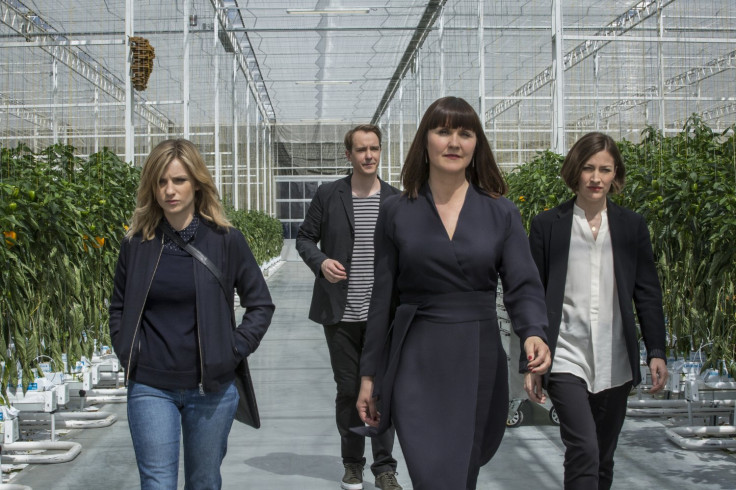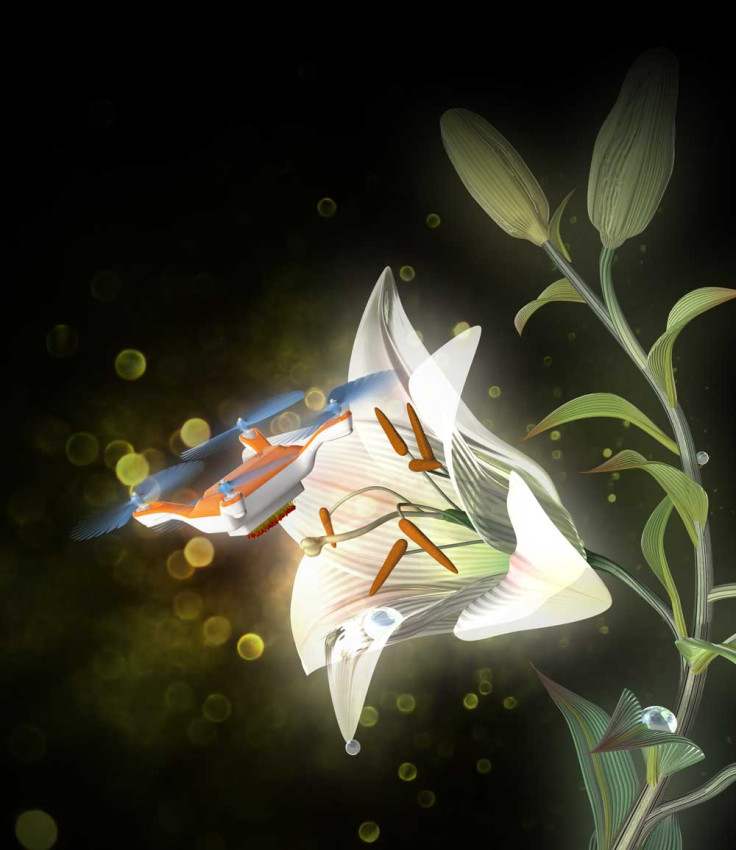Black Mirror coming true? Tiny drones to replace bees as pollinators in Japan
A sticky gel and animal hairs attached to a miniature drone is a step towards artificial pollination.
Researchers are developing tiny drones in the hope that they could do the crucial job of pollinating crops in a world without bees. They have just moved one step closer, developing a sticky gel with which to to coat the drones so that they can pick up and deposit pollen between flowers.
Bees and other insects are essential pollinators for many plants, including almost all commercial food crops. Bee populations worldwide have been declining due to a phenomenon known as colony collapse disorder. The solution of using artificial pollinators has been proposed before, to prepare for a dystopian future where all the bees are dead, as imagined in shows like Charlie Brooker's Black Mirror.
Scientists in Japan have now designed a small drone – that actually looks nothing like a bee – capable of picking up pollen from a lily and depositing it at another lily flower by using a particularly sticky gel, they report in a paper published in the journal Chem. They painted the gel onto natural hairs attached to a small drone, costing about $100 (£80), and flew it into various flowers to transfer pollen from one to the next.
The gel had actually been discarded from a previous experiment, in which chemist Eijiro Miyako of the National Institute of Advanced Industrial Science and Technology in Japan had been trying to make new electricity conducting liquids. The gel was tested for the pollinating experiment after sitting in an uncapped bottle for 8 years.
"This project is the result of serendipity," Miyako said in a statement. "We were surprised that after 8 years, the ionic gel didn't degrade and was still so viscous. Conventional gels are mainly made of water and can't be used for a long time, so we decided to use this material for research."

Before trying the gel on the miniature drones, the researchers first used it on a box of ants. They attached a tiny droplet of the gel to the ants and let them roam free across a lot of pollen. More pollen stuck to the ants with gel than the ones without.
"The findings, which will have applications for agriculture and robotics, among others, could lead to the development of artificial pollinators and help counter the problems caused by declining honeybee populations," Miyako said. "We believe that robotic pollinators could be trained to learn pollination paths using global positioning systems and artificial intelligence."

© Copyright IBTimes 2025. All rights reserved.






















